Is the COVID-19 Outbreak a Black Swan or the New Normal?
While we continue to grasp the scale of this pandemic, the new challenges we face point to more permanent changes we must make in our lives and how we do business.

Carolyn Geason-Beissel/MIT SMR | Getty Images
In the time between writing this and reading it, whatever I say about COVID-19 will likely be out of date. That’s the nature of something moving at exponential speed through society. The scale of what’s happening is hard to grasp, and it’s logical to wonder whether COVID-19 is the so-called black swan that society and business have feared. The answer is, of course it is. But it also could be the kind of challenge we now will face all the time — a new normal.
It’s way too early to talk about “lessons learned” while a large-scale human tragedy unfolds. But it’s hard to think about anything else right now, and the brain looks for something useful to grab on to. So I’ll make a few observations about this global challenge and its relation to our other mega-issues like climate change.
Big-Picture Thoughts
We have to get better at understanding and reacting to exponential growth. As of February 11, the number of COVID-19 cases outside of China was fewer than 400. As I write this five weeks later, it’s more than 90,000 — a rise of more than 18% in a single day.
Teachers have long used this parable to explain exponential growth: Imagine a pond with a single lily pad. Each day, the number of lily pads doubles, and in 30 days the pond is covered (and smothered). On what day do you think it was half covered? What about only 1% covered? The answers are day 29 and day 24. Even if you use a 50% growth rate instead of 100%, it’s day 28 and day 19.
In the context of COVID-19, this means that if we don’t “flatten the curve of growth,” a vast amount of illness and death will hit very rapidly. Our health care system and economy risk collapsing under the weight.
We do have experience (and spotty success) managing the exponential growth that drives our biggest global challenges, including population, use of resources, and emissions of greenhouse gases. From the Industrial Revolution to the 2010s, these all have grown nonlinearly. The growth of emissions is now slowing, thankfully. But, in part, because it was hard to envision what exponential growth of emissions would look like, we’ve reacted too late to avoid significant impacts on people and the planet. The same thing is happening now with COVID-19 as people are slow to dramatically cut contact with others, and so some unknown amount of suffering still lies ahead.
On the flip side, because we need some good news, some great things have moved nonlinearly in recent decades: the lessening of childhood poverty, the reduction of some diseases (some down to zero), and the downward slope of the cost of renewable energy. These positive trends drive deep change in society and require preparation as well.
Planetary boundaries will shape our world for the foreseeable future. There’s only so much planet to go around — only so many productive mines, only so many fish in the sea, only so much arable land, only so much CO2 that oceans and atmosphere can absorb, and so on. As we test these limits, we risk shifting the planet beyond recognition. All economies and businesses have to find a way to work within these basic speed limits.
Arguably, the rise of viruses like the one that causes COVID-19 is a byproduct of some of these boundaries. Scientists don’t have a full understanding of the origin of the COVID-19 virus yet, but it’s known that bats were probably involved, as well as some other species. The earliest people infected in China worked in a live-animal market with unusual fare such as pangolin, a kind of anteater, another suspected source of the outbreak. But why are people eating so-called bushmeat? Perhaps this oversimplifies, but it’s some combination of pure survival and an attitude that “animals live for man.” When nearly 8 billion people inhabit a single planet, pushing up against nature, and billions don’t have enough to thrive, they will eat anything. And when we see nature as purely something to use, we overexploit it.
We must understand that we’re all connected. The pendulum has been swinging in recent years to an “every person for themselves” attitude. Pure nationalism is frankly dangerous in the face of borderless issues like climate change, resource overuse, and, yes, pandemics. On some level, we’re only as strong as our weakest immune systems.
In this vein, seemingly political questions like “Should everyone have some basic health care coverage?” become issues of human and economic thriving. In short, if people have no coverage and can’t stop working when they’re sick anyway (because they lack paid leave or benefits), they will show up at work. They will handle and prepare food. They will sell us our groceries. They will drive our Lyfts and our ambulances.
There is no hiding behind physical or economic walls forever. If there isn’t a basic floor of access to energy, water, food, and health care for everyone, we’re all at risk. If we don’t all thrive, none of us will.
Climate change and disease are linked. There are overlaps and dependencies between all our biggest issues. As the planet warms, the seasons will lengthen and geographic ranges will expand for many dangerous diseases, such as malaria, dengue fever, chikungunya, and West Nile virus. We need to think about our health care system with all these trends in mind.
At the same time, when the seas rise and some areas become uninhabitable, there will be more refugees. They will likely have little economic and health care support. I am not saying that refugees bring in exotic diseases — our own citizens traveling on planes and boats have imported and spread COVID-19. But we can recognize that more people on the move with limited institutional support won’t make for better overall health.
And in a perverse way, economic slowdowns from market crashes or pandemics slow emissions. As former U.N. climate chief Christiana Figueres said recently, slower economic growth from coronavirus “may be good for climate … because there is less trade, there is less travel, there is less commerce.” This obviously is a consequence that evokes mixed emotions: Less pollution is good, but the human costs of economic slowdowns add real pain to the already devastating outcomes of a pandemic.
We can see from space that the air quality around Wuhan, China, is dramatically better when people, you know, stop doing anything. This is not how we want to get there, but this crisis allows us to imagine a world where the footprint of our economy is much smaller and people can quite literally breathe easier. About 8 million people die prematurely from bad air every year. Wouldn’t it be nice to find a way to build an economy for all that greatly reduces the risk of pandemics and slashed the ongoing death and disease from pollution and climate change?
Some Thoughts for Companies
In the thick of a crisis of this magnitude, it’s hard to step back and see what companies might take away from what they’re experiencing today, but let’s try. A few themes:
When in doubt, we should put people first. The first reaction to the virus, especially in the U.S., seemed to be about mitigating its effect on the stock market and economy. Many companies put out statements about impacts on supply chains and demand. All of that matters, but seriously, we’re experiencing a human health emergency. Companies and governments can do better than just talk about profits and the market.
Given the tragedy at the core of this, company leaders should ask themselves, “What’s the best thing we can do for our employees?” Going virtual is the easiest for some organizations, but it gets more complicated for jobs that can’t be done remotely. Can companies provide some emergency pay for workers as the economy slows — or at least ask for government grants and loans to do so?
Many companies also have experience with putting communities first in an emergency. One of the defining moments of corporate sustainability came in 2005 when Walmart’s leaders realized that the company was doing better than the government at getting supplies to people trapped by Hurricane Katrina. This led to soul-searching and the CEO asking himself what else the company could do for society. More recently, Budweiser shifted production to make half a million cans of water for hurricane victims. And many companies have worked with the U.N. to offer aid during pandemics — Unilever provided 750,000 bars of soap during an Ebola outbreak.
As I write this, companies are beginning to step up and take dramatic action to help the world get through the pandemic. French luxury leader LVMH announced that it is pivoting three factories to make hand sanitizer, and it will give tons of the gel to the French government and hospital systems for free.
Communities, governments, and employees will remember these actions. These companies, by helping people and doing what’s right, build trust and enhance their license to operate.
Economic resilience in the face of black swans requires companies to do things differently. Our current economic model is based on pursuing efficiency: Find the quickest and cheapest way to do or make something, and you likely have a time or cost advantage. But global supply chains that optimize for centralization and reduced costs have serious potential weaknesses.
An analysis of global supply chains earlier this month calculated that the world’s 1,000 largest companies and their suppliers have over 12,000 facilities in quarantined areas of China, Korea, and Italy. We’ve seen something like this before. Massive floods in Thailand in 2011 shut down factories that made critical parts for the computer hard drive industry and components for major automakers. Those were the only places some parts were made.
Nothing can prevent the demand reductions that will come from social distancing and severe cutbacks in travel and all services. But more generally, there are some things organizations can do to reduce the risks to operations. They can build into their value chains some duplication and diversity — key principles of resilience in nature (we have two kidneys for a reason) — in production and suppliers. In the short run, multiple supply chain and production pathways may seem less than efficient, but they come in handy in an emergency. Businesses should value resiliency and risk reduction in their plans and investment calculations, not just whatever gets them the lowest cost today.
Companies must also prepare for good exponential trends, which demolish some business models and create new ones. The clean economy, for example, is replacing fossil fuels at what seems like a slow rate, but like the lily pads, it will take over quickly.
We may discover something useful about how we interact and travel. Like it or not, we’re embarking on a grand experiment with remote work and technology. As Figueres, the former U.N. official, said in February, “We may realize that we don’t have to travel as much. And I am sure the market will jump into the opportunity, even perfect even more technologies so that we can communicate and participate in meetings, almost as though we were physically present. That would be a systemic contribution to [reducing] climate change.” As she notes, all of this will prepare us for accommodating diseases and pandemics in the future.
Business needs to get off the policy and political sidelines. It’s critical for companies to do what’s right for their employees and some community members in a crisis. But during systemic emergencies and challenges, we need more. Business needs to use its political influence to drive change in government.
Most multinationals outside the energy sector have avoided any serious lobbying or communication with political leaders about climate policy. They sign statements supporting action but don’t show up in person in D.C., Brussels, or regional and state capitals to make their case for a price on carbon or investments in clean tech.
The same may be happening with COVID-19. Companies — and large organizations like universities and all the professional sports leagues in the U.S. — are going virtual or shutting down quickly. That’s the right thing to do to flatten that curve of the infection rate.
But is it enough just to do what’s directly within your control? Not anymore. Business obviously has a deep stake in having a functioning economy and employees that are healthy. So slowing the virus must be a top priority. That means calling on governments to get their act together to close schools, ban public gatherings, develop testing infrastructure much faster, and provide constant transparency about what’s happening. If the federal administration of a country is lagging, companies need to apply pressure fast.
For me, all of this adds up to where I started: COVID-19 and climate change are, of course, black swans, one moving faster than the other. But they point to more permanent changes we all have to make in our lives and how we do business.
Let’s hope we pull together in time on all of these challenges and take the opportunity to build a more humane, compassionate, sustainable world. Please stay home for now and stay safe.

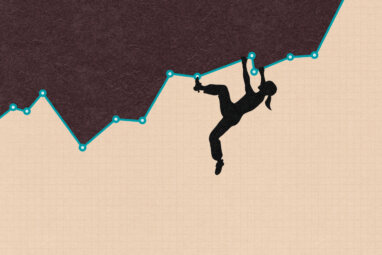


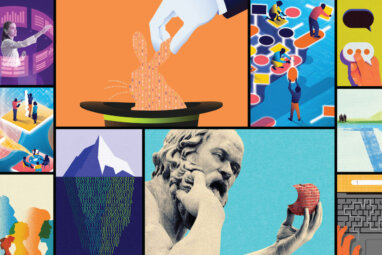
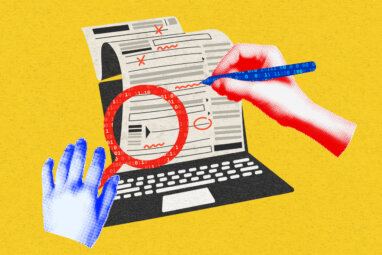
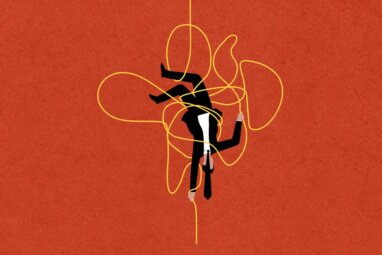
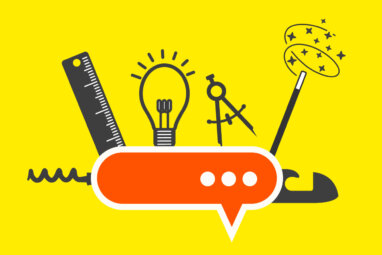

Comment (1)
Vinay Pandey